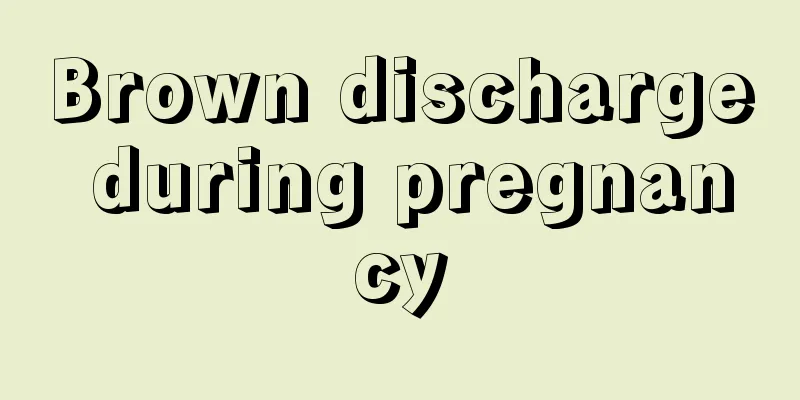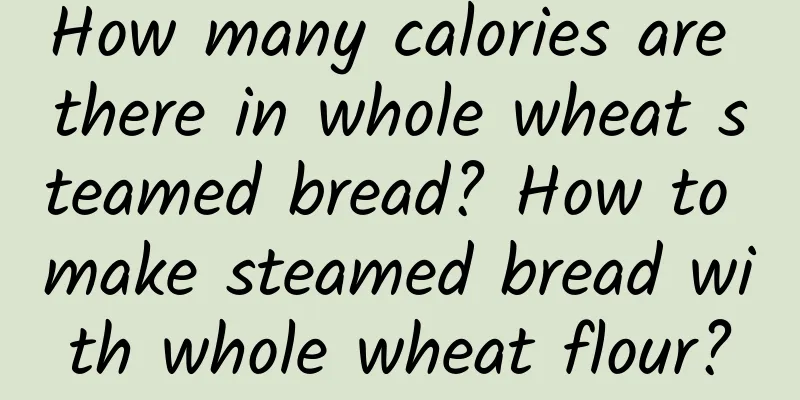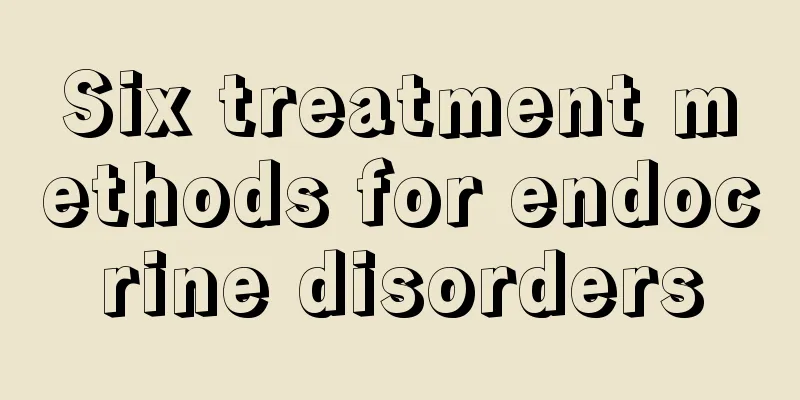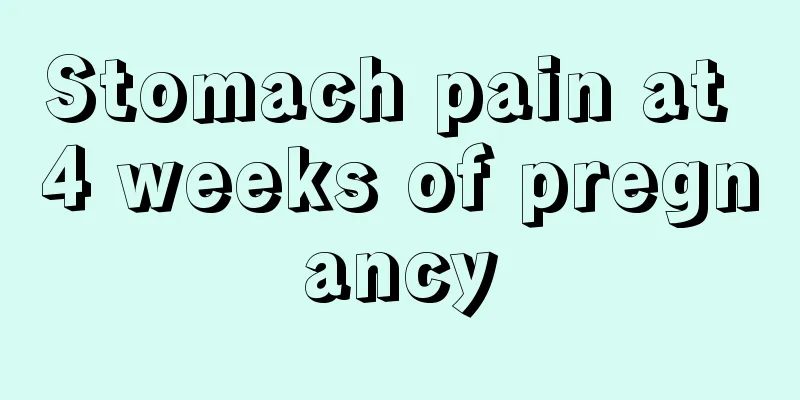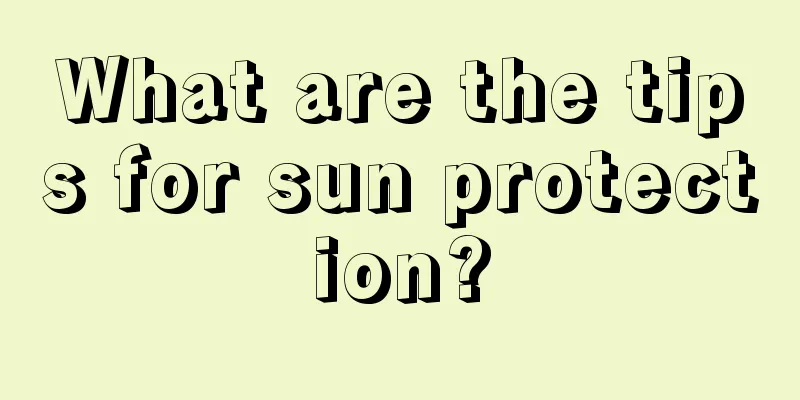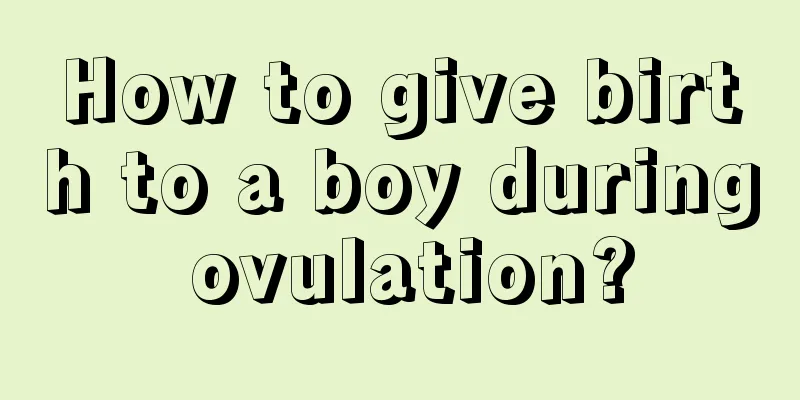Can I eat plums during menstruation?

|
There are many foods that you cannot eat during menstruation, otherwise it will affect your health. However, you can still consume some fruits such as plums. Generally speaking, it will not cause any harm to your body. You can also eat more foods rich in vitamins. These foods are also very common. Only by improving your diet can your menstruation be healthier. 1. Before menstruation : Supplement the nutrients needed for physiology through diet: B vitamins, as well as vitamin A, vitamin C, and vitamin E. (1) Foods rich in B vitamins: wheat germ, pork, soybeans, peanuts, ham, black rice, animal liver, seaweed, kelp, milk, cereals, bananas, walnuts, etc. (2) Foods rich in vitamin A: animal liver, milk and dairy products, eggs, carrots, broccoli, spinach, lettuce, oranges, apricots, sweet potatoes, etc. (3) Foods rich in vitamin C: leeks, bell peppers, celery, cauliflower, tomatoes, spinach, cabbage, potatoes, snow peas, tangerines, oranges, grapefruits, grapes, strawberries, etc. (4) Foods rich in vitamin E: wheat germ oil, corn oil, peanut oil, sesame oil, walnuts, melon seeds, kiwi fruit, soybeans, spinach, rapeseed, corn, nuts, etc. 2. During menstruation : You can appropriately supplement some warming foods or foods that relieve menstrual pain. (1) Foods that warm the body: Women with a cold constitution can eat more foods that warm the meridians and dispel cold, such as dog meat, mutton, chestnuts, lychees, brown sugar, and ginger. (2) Foods that relieve dysmenorrhea: Women with dysmenorrhea can eat more foods such as spinach, celery, coriander, yam, carrots, grapes, kelp, black fungus, etc., which can promote blood circulation and relieve dysmenorrhea. (3) Others: If you have symptoms such as poor appetite and back pain during your period, you should choose foods that are nutritious, spleen-strengthening, appetite-stimulating, and easily digestible, such as jujube, yam, noodles, and coix seed porridge. 3. After menstruation : After menstruation, especially for those with heavy menstruation, you can supplement protein, iron and minerals appropriately within 1-5 days after the menstruation ends. (1) Foods rich in protein and minerals: mainly include beans (including soybeans, black beans, etc.), milk (including cow's milk, goat's milk, etc.), seafood, animal offal, meat (including pork, beef, mutton, etc.), rice, etc. (3) Foods high in iron: Fish, lean meat, animal liver, animal blood, soybeans, spinach, etc. are rich in iron and have high biological activity and are easily absorbed and utilized by the human body. |
>>: Can I eat corn during menstruation?
Recommend
Can I have a medical abortion when I am almost seven months pregnant?
There are always many accidents happening in the ...
How to store sugarcane for a long time? Nutritional content of sugarcane
Sugarcane has high nutritional value. It contains...
Lower abdominal distension and pain Leucorrhea like snot
For women, if the secretions are abnormal, it mea...
Hardening of the uterus during pregnancy
What are the reasons why the uterus of pregnant w...
Identify the name of the medicine | Re-recognize "old friends" - Cetirizine and Flunarizine
Today's protagonists are two "old friend...
Sexual intercourse 38 days after delivery
Many women do not pay attention to taking care of...
What should you pay attention to after doing the postpartum sweat steaming?
Nowadays, many people do sweat steaming, which is...
Does medical abortion require uterine curettage?
Everyone knows that the best way to deal with an ...
Can people with uterine fibroids eat black beans? What are the precautions?
Uterine fibroids are currently the third largest ...
Unpleasant odor in the lower body during late pregnancy
In the late stages of pregnancy, if there is an o...
University of California: A survey found that people who frequently use social networks have a 12% lower overall risk of death
Recently, we often see heated discussions on the ...
Are there any symptoms of fallopian tube obstruction?
What are the symptoms of fallopian tube obstructi...
Nipple pain after ovulation
It is a normal physiological phenomenon for women...
Pre-pregnancy check-up items
As the development of modernization continues to ...
Can the black sac of scallops be eaten? How to deal with the scallop edges
Scallops are a type of marine shellfish mollusk t...


